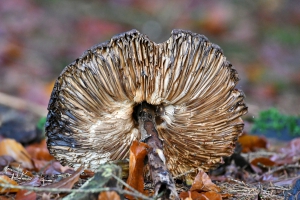Fungal Disease Awareness Week
From September 18 to 22, 2023 it's the Fungal Disease Awareness Week.
Many people are affected by fungal diseases at various times in their lives. For example, inhaling mold spores can cause diseases such as histoplasmosis, blastomycosis or valley fever.
Fungal diseases are increasing worldwide. This is due to the increase in the Earth's temperature which can allow infectious fungi in the environment to grow in new areas that were previously too cold. Changes in climate can also cause fungi to evolve, threatening the emergence of new fungal infections. For example, the Candida Auris epidemic (the hospital fungal infection!) would be the first to be caused by climate change. The fungus is known for its extreme resistance, its super-fast spread and the high mortality rate of patients who become infected with it.
Of course, not all molds are poisonous, but some molds are known to be capable of producing toxins (mycotoxins). Eating or inhaling these toxins can lead to a yeast infection.
Despite all we now know about how mold causes diseases, misdiagnoses still occur and can cost lives. Also the fact that people are increasingly becoming resistant, there are only limited available antifungal medications. This means that it is more common that fungal diseases cannot be treated.
This week should ensure that the world population becomes aware of the fact that inhaling or eating mold spores can have fatal consequences.
Source: Mushroom Matter
Fungi can also be deadly!
We know most fungi to be beautiful to see and a number of them are also very tasty. But that they can also be deadly proves the discovery of a rare black fungus in patients in India. Black fungus infection (Mucormyosis) has struck in this country.
The infection is caused by various fungi. These so-called mucormycetes grow in the soil, in dirt and on rotting material, including rotting leaves or wood. People get the infection by inhaling the fungal spores that float around in the air and dust. These spores get trapped in the nasal passages and sinuses and that’s what causes the disease.
Not everyone exposed to the spores will get the infection. But the increase in the number of cases in India is probably due to the disease showing up in patients who have had corona and therefore have a less immune system. A connection is also seen with the drugs used to combat Covid-19. People with diabetes would also be extra sensitive to getting the infection.
The disease infects the nerves, brain and lungs. If the fungus spreads to the brain, the risk of death is 50%. Early diagnosis can be a life saver, but even then fighting the infection will be a tough task.























